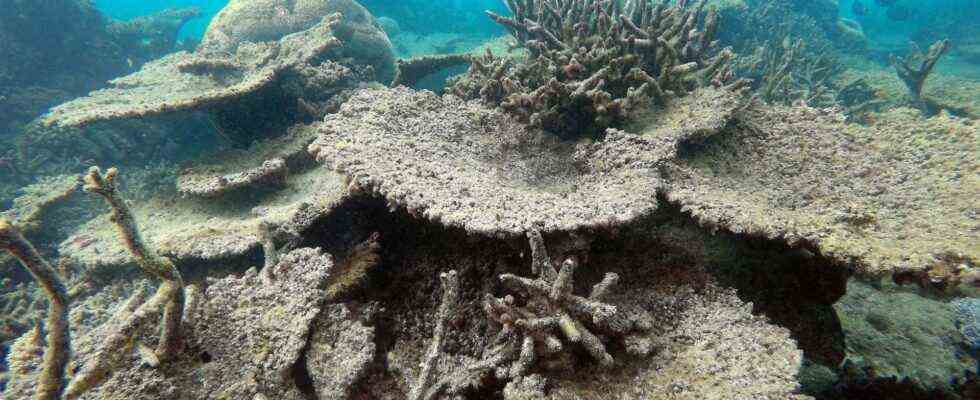Status: 07/18/2021 12:24 p.m.
One consequence of climate change is the destruction of coral reefs. Globally, a third has already been lost, 40 percent are massively threatened. Scientists in Bremen are looking for ways to stop coral death.
The University of Bremen is hosting a virtual edition of the International Coral Reef Symposium (ICRS) next week. Around 1200 researchers from 80 nations will spend five days at an online congress to discuss how the destruction of valuable underwater ecosystems can be stopped. According to the university, 30 percent of all coral reefs have already been lost and 40 percent are seriously threatened.
Christian Wild from the University of Bremen finds clear words for the situation of the worldwide coral reefs: “The condition is devastating. And the latest studies indicate that it is getting even worse.” The biologist organized the “14th International Coral Reef Symposium 2021” with his team.
The decisive decade has begun
Actually, the conference, which takes place every four years, should have been held in Bremen in 2020 with 3000 participants, and thus for the first time in Europe. The event had to be postponed due to the corona pandemic. In July 2022, the researchers want to meet at a face-to-face event in Bremen.
The fact that two congresses are now being held in quick succession also shows the urgency that the researchers see on the topic. “The next decade is probably the last chance for policymakers to prevent coral reefs from collapsing around the world,” says Wild. The experts therefore prepared a position paper that will be presented at the conference.
“Germany contributes to climate change”
This position paper lists specific recommendations for action. “We hope that politicians will react and take up the messages,” says Sebastian Ferse from the Leibniz Center for Tropical Marine Research in Bremen and co-author of the strategy paper. The main reasons for the destruction of coral reefs are overfishing and pollution of the seas, as well as climate change.
Climate change is causing sea temperatures to rise, which in turn leads to the notorious coral bleaching. “Germany is not a coral reef country, but it is contributing to climate change,” says Ferse. He therefore also sees a need for action at the federal government.
New approaches to reforestation of the reefs
The researchers are also hoping for new approaches to the restoration of destroyed coral reefs formed by cnidarians. So far, parts of intact coral reefs have mainly been cut off for reforestation in order to re-attach them to destroyed reefs. “Corals have an extraordinary ability to regenerate,” says Wild.
In experimental projects, the sperm and egg cells of the cnidarians are now being collected, and the larvae are then applied to artificial structures. “The advantage is that you get new coral reefs without destroying anything,” said Wild. In order to restore the colorful underwater ecosystems on an order of magnitude of thousands of square kilometers, however, further investments in research are necessary, says scientist Ferse: “We are not in a position to do this at the moment.”
UNESCO wants to classify the Great Barrier Reef as endangered
Despite resistance in Australia, the UNESCO World Heritage Committee wants to classify the Great Barrier Reef as an endangered natural site. The work in Australia is highly valued, but the draft decision “is a proposal to put the site on the list of endangered world heritage,” said the director of the committee, Mechtild Rössler, at a press conference during a meeting of the UN body -Culture organization. The proposal is on the agenda.
The meeting’s director and president, China’s Vice Minister of Education Tian Xuejun, denied speculation that the world-famous coral reef might be put on the list of endangered sites at the behest of the Chinese government amid political tensions between China and Australia. “The recommendation is based on the reports and data that Australia has provided us with,” said Tian Xuejun. He opposed “baseless allegations”.
The Great Barrier Reef off the coast of Australia has an area larger than Italy. The reef is suffering badly from coral bleaching.
Image: AFP
As a result of climate change, the world’s largest reef is threatened by warm water and coral bleaching. The Great Barrier Reef off the east coast of Australia extends over more than 344,000 square kilometers – and is therefore larger than Italy. It can be seen with the naked eye from space.
Coral reef conference in Bremen
Nikolas Golsch, Radio Bremen, July 18, 2021 12:46 p.m.

